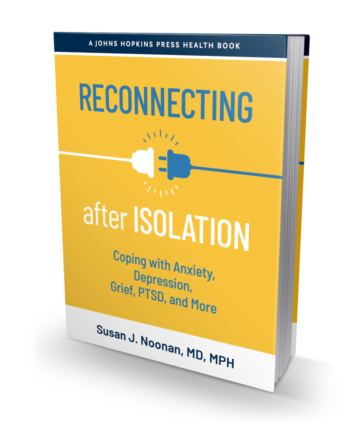 Today’s blog is an interview with Louisa Grandin Sylvia, PhD., clinical psychologist, Assistant Professor at Harvard Medical School, and Associate Director of Psychology at the Massachusetts General Hospital Bipolar Clinic and Research Program. She has developed a program called nutrition, exercise and wellness treatment (NEW Tx) that has been helpful to many and is covered in her fabulous new book The Wellness Workbook for Bipolar Disorder: Your Guide to Getting Healthy and Improving Your Mood (2015).
Today’s blog is an interview with Louisa Grandin Sylvia, PhD., clinical psychologist, Assistant Professor at Harvard Medical School, and Associate Director of Psychology at the Massachusetts General Hospital Bipolar Clinic and Research Program. She has developed a program called nutrition, exercise and wellness treatment (NEW Tx) that has been helpful to many and is covered in her fabulous new book The Wellness Workbook for Bipolar Disorder: Your Guide to Getting Healthy and Improving Your Mood (2015).
SJN: In your book you emphasize the importance of exercise as a helpful strategy for mood disorders. Do you have any suggestions for those who find that, after perhaps working all day or caring for a family and/or household, there is “not enough time” in their day for physical exercise and self-care activities?
Dr. Sylvia: Time is one of the top reasons why people report not making healthy lifestyle changes. It is very true that people are busier than ever. Thus, I have two suggestions. First, ask yourself what do you make time for? Could any of these be substituted for exercise, an activity that has proven benefit for your physical and mental health? Often, it is being willing to make the necessary changes in order to make time for exercise. Second, how can you increase your physical activity within your current routine? It really can make a difference to take the stairs, walk to the library, or run on the playground with your kids. Find ways to increase your daily lifestyle activity.
SJN: You have a very helpful chapter on the need to reward yourself after adhering to certain goal behaviors. What are your thoughts on when to reward yourself and how often? Can you give yourself a reward too often?
There are a few key aspects to rewards. First, you have to be willing to reward yourself; to see that you deserve to be rewarded. Rewards can be very motivating and can make a difference in changing your behavior, but only if you can allow yourself to experience the reward in a positive away (e.g., opposed to feeling guilty for rewarding yourself or believing that you have not done enough yet to be rewarded). Second, not all rewards are good rewards. For example, sleeping in later (or past your wake up time) is not an effective reward if it makes you late to work. Having an alcoholic beverage or a favorite (unhealthy) meal are also not great rewards if you have difficulty controlling your drinking or eating healthy meals. Rewards should also match the task completed. For example, it may not make sense to buy a new car as a reward for exercising four times that week. Similarly, telling yourself “way to go!” after running a 5k race (or a marathon!) may not be enough of a reward for such a challenging task.
SJN: You have said that being depressed or having an elevated or manic mood can get in the way of good insight when making decisions, and that because one has bipolar disorder he or she is more likely to be impulsive, particularly when depressed or manic. Can you explain the difference between having insight and being impulsive? How can a person develop better insight?
Dr. Sylvia: Insight is having the capacity to have an accurate understanding of a person or thing, or having a good sense of what is right and wrong. Impulsivity is doing something suddenly or without careful thought. If you have very good insight, it is possible that you could be impulsive and still make some good decisions, but in general being impulsive means that you are not using good insight. Depression and mania negatively affect one’s insight and impulsivity. This can mean making healthy lifestyle choices much more challenging, for example, it could be harder to turn down the donut or make the choice to exercise, but these choices are still very possible. Developing good insight takes practice and experience. Pay attention to what works for you and what does not work for you, especially when you are depressed and/or manic. This will help to build your insight. Also, listen to the people who know you well, as they may be able to give you insight into what works for you and others.
Thank you Dr. Sylvia!
